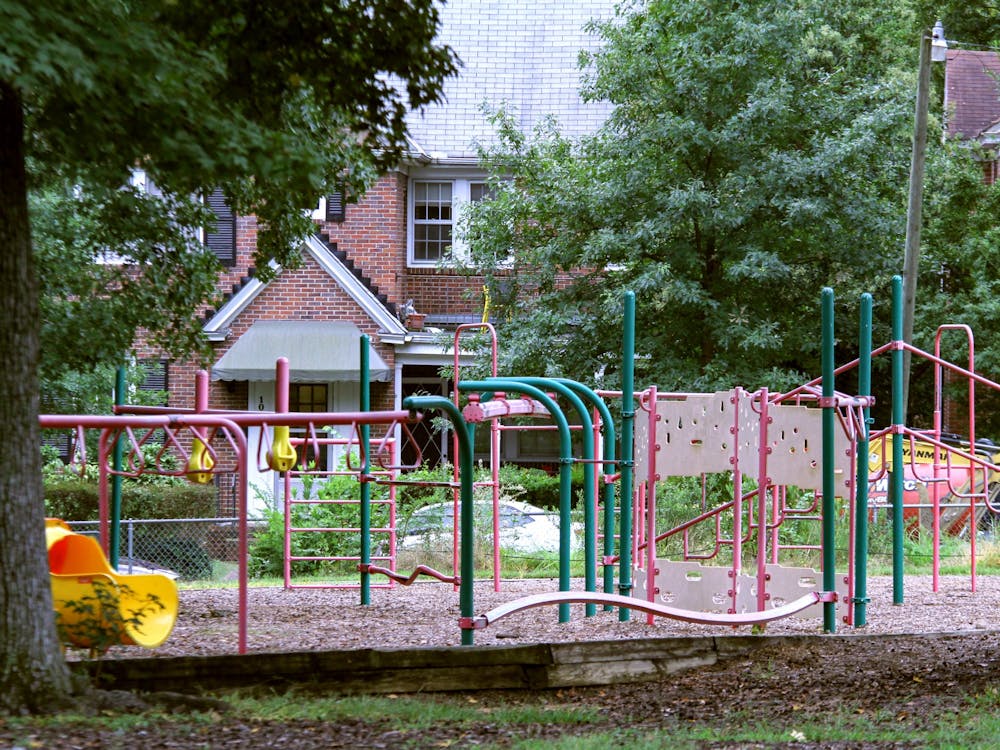The Durham Association of Educators’ “Our Kids Can’t Wait” campaign hopes to transform Durham’s public education system. Their demands address issues facing students and educators, which have been exacerbated by the COVID-19 pandemic.
While the movement to advance Durham Public School teachers’ rights has a long history, current demands seek to address the shockwaves of the COVID-19 pandemic, which has strained teachers’ mental and physical health.
“As the conditions of labor [change], there has been a surge of folks that have taken a step to say, ‘I'm not going to be treated this way anymore,’” said Symone Kiddoo, student services director for DAE and a DPS social worker.
Durham educators are now struggling to fill the vacancies left by a spike in teachers’ resignations. The most recent report from the North Carolina State Board of Education announced that in the 2020-2021 school year, 204 of the 2,470 DPS educators resigned, with 101 of them citing personal reasons.
“We have over 400 vacancies in DPS as of today, in a district with just over 50 schools,” tweeted the DAE account. Another thread on this account described how elementary school students can see “anywhere from [three to 10] staff members absent during the day.”
In response, the DAE jumpstarted the “Our Kids Can’t Wait” campaign, which quickly gained community support in recent months. The DAE Twitter account reported over 1,600 petition signatures by Feb. 28. The DAE held a rally on Feb. 24 in front of the DPS Board of Education building, advocating for their demands before a Board of Education meeting. The rally came after DAE organizers successfully campaigned for retention bonuses, which the DPS Board of Education approved on Feb. 10.
The campaign demands include a retention bonus to keep remaining staff, one planning day a month for the rest of the year, the establishment of a clear threshold for schools to move to remote learning due to staffing shortages and a streamlined process for hiring substitutes. However, the DAE also wishes to progress beyond these short-term goals.
“There were some [issues] that felt like long-term, ongoing projects that are more about cultural shifts in the district, cultural shifts in education,” Kiddoo said.
These issues include mental health support for staff members and students, major reforms and increased funding for members of the transportation department and better investment in language services.
These recent demands are not revolutionary—the DAE has been campaigning for them for years.
DAE President Michelle Burton remarks on the shift from pre-recession lobbying and servicing for DAE members to the formation of the post-recession “Organize 2020” caucus of the North Carolina Association of Educators, the state-wide organizer of the DAE.
“It was a different model to organize around working conditions, because teacher working conditions are students learning conditions,” Burton said. “Instead of having one person advocate for you, you organize people, and you do organizing campaigns and things like that.”
Red4Ed, a non-profit organization founded in 2013 by teachers, was also fundamental for the advancement of teachers’ rights in Durham. From 2013 to 2016, Red4Ed coordinated with the NCAE and Organize 2020.
“Organize 2020 focused on grassroots organizing and Red4EdNC focused on communication & messaging, lobbying and policy development,” according to the Red4Ed website, which has since been archived. “The most exciting reason [for the archival] is because it is no longer needed. Members of our group now hold key leadership positions in state level institutions and those institutions have communication platforms with wider reach and greater influence.”
The DAE continues this history of organizing today through its political advocacy by endorsing candidates in local elections, such as prospective county commissioners and school board members. The organization is currently preparing for the May 17 primary for the five school board seats up for election this year. However, members take a broader look at political advocacy to expand to student living conditions.
“We even endorsed the [Durham City Council] race because even though the City Council … [doesn’t] affect our schools [directly], most of the children who go to Durham public schools live in the city of Durham. So what they do affects our kids,” Burton said.
Ultimately, the fight for Durham teachers’ rights goes far beyond staffing problems and working conditions. At its core, it is about how public schools are overlooked and neglected. Burton points to Duke itself as an example of how people believe education is worth investing in.
“People pay a lot of money to go to Duke—a lot of money. There's a reason why parents are willing to pay that kind of money because they want their children to have the best education possible,” Burton said. “Yet, we don't want to take the same resources and educate our kids in public schools. It makes no sense to me.”
Through their advocacy, members of the DAE hope to change not only their lives, but the wellbeing of their students’ futures.
“We can't live in a country where you have haves and have-nots,” Burton said. “The [students] all deserve it—everybody. We must develop our kids to live to their fullest potential, and that means giving them the best public education that they can possibly have.”
Get The Chronicle straight to your inbox
Signup for our weekly newsletter. Cancel at any time.

Audrey Wang is a Trinity junior and data editor of The Chronicle's 120th volume. She was previously editor-in-chief for Volume 119.

